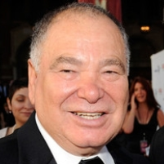Officials
Back to Officials


Offical

Name: Yzaguirre, Raul
Current Position: Previous Ambassador
President Barack Obama can only hope Raul Humberto Yzaguirre, Sr., nominated to serve as ambassador to the Dominican Republic, does not do to him what the outspoken civil rights advocate has done to other presidents, namely blast them in public for political decisions with which he disagreed. Obama announced his nomination of Yzaguirre on November 30, 2009, and he appeared at a confirmation hearing before the Senate Foreign Relations Committee on March 11, 2010. However, he was not confirmed until September 29.
Born on July 22, 1939, in San Juan, Texas, Yzaguirre was raised by his Mexican-American parents, Ruben Antonio and Eva Linda (Morin) Yzaguirre. He grew up in the Rio Grande Valley of South Texas during a time when Hispanics were subject to a curfew. His grandfather reportedly was almost lynched one night while coming home after dark from work. Yzaguirre ran away from home at the age of thirteen and worked on a ship, but soon returned to his family.
Yzaguirre’s interest in civil rights began early when, at the age of fifteen, he organized the American G.I. Forum Juniors, an auxiliary of the American GI Forum, dedicated to addressing problems of discrimination and inequities endured by Hispanic veterans following World War II. Graduating from Pharr San Juan-Alamo High School in 1958, he served four years in the U.S. Air Force’s Medical Corps.
In 1963, Yzaguirre enrolled at the University of Maryland on the G.I. Bill and planned to study medicine. After one year, he decided to transfer to George Washington University (GWU), where he became involved in student and community activism in the capitol region. In 1964, he founded the National Organization for Mexican American Services.
He married Audrey H. Bristow during his sophomore year at GWU, and in 1968, received his Bachelor of Science. After joining the Lyndon Johnson administration’s Office of Equal Opportunity’s Migrant Division as a program analyst, Yzaguirre founded Interstate Research Associates, a firm specializing in Mexican-American and education-based studies. He stepped down as the organization’s executive director in 1973 and returned to Texas.
In 1974, Yzaguirre took over the leadership of the National Council of La Raza (NCLR) which seeks to address issues involving poverty and discrimination. Under Yzaguirre’s 30-year leadership, NCLR expanded from a regional advocacy group with 17 affiliates to more than 300 serving 41 states, Puerto Rico, and the District of Columbia. Yzaguirre worked to expand membership criteria to include not only Mexicans but also Puerto Ricans, Dominicans, Argentines, Cubans and all other Hispanic subgroups.
Yzaguirre’s biographies state that the commissioner of the Immigration and Naturalization Service (INS), Leonel Castillo, fired Yzaguirre as chair of the INS’s Hispanic Advisory Commission for publicly criticizing President Jimmy Carter’s immigration reform proposals.
Yzaguirre also was not afraid to speak out against decisions by Presidents George H. W. Bush and Bill Clinton. He criticized Bush for his affirmative action stance even after Bush agreed to be the first sitting president to appear at an NCLR Annual Conference. He chastised Clinton for not appointing more Hispanics to key positions and for the 1996 welfare reform, which led to his resignation as chair of the President’s Advisory Commission on Educational Excellence for Hispanic Americans.
Following his retirement in 2004 as CEO and president of the NCLR, Yzaguirre joined Arizona State University (ASU) in January 2005 as a presidential professor of practice in community development and civil rights. At ASU he served on the board for the North American Center for Transborder Studies, which works to advance teaching and research on North American regional integration.
During the 2008 presidential race, Yzaguirre served as a co-chair of Hillary Clinton’s campaign to win the Democratic nomination, which included chairing her Hispanic outreach efforts.
His other affiliations and activities include serving on the boards of the United Way of America, the AARP, Hispanic Association for Corporate Responsibility, Enterprise Foundation, the National Democratic Institute, the Trustees of Dowling College, the Salvation Army and the 4-H Club. Yzaguirre also is a lifetime member of the Council on Foreign Relations.
From 1989 to 1990, he served as one of the first Hispanic Fellows of the Institute of Politics at the John F. Kennedy School of Government at Harvard University.
Raul Yzaguirre (Arizona State University)
Raul Yzaguirre (University of Texas-Pan American)
Ready to Rumble: Civil Rights Heavyweight Raul Yzaguirre on Life, the Evolution of the NCLR, and Giving Latinos a Fighting Chance (interview, Latino Leaders)
- Latest News
- D.C. Public Schools will Teach all Second-Graders to Ride a Bike
- New Rule in Germany Limits Sales of Sex-Themed E-Books to 10pm to 6am
- What Happened to the 6-Year-Old Tibetan Boy the Chinese Government Kidnapped 20 Years Ago?
- U.S. Ambassador to Turkey Photoshops his Hair Color to Mock Turkish Mayor
- Mystery Artist Calls Attention to Unfixed Potholes by Drawing Penises around Them




